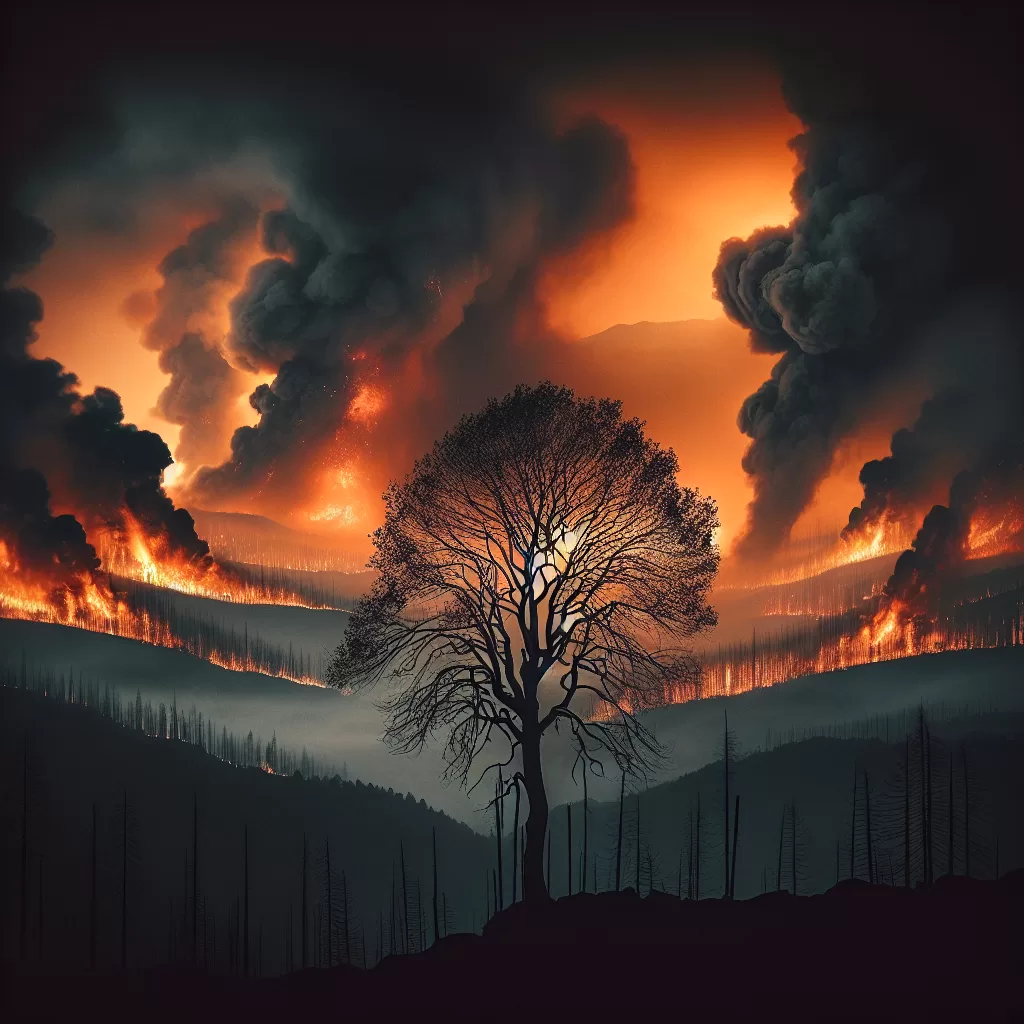Raging Wildfires: A Burning Wake-Up Call for Climate Action
A Fiery Onslaught
Fanned by intense drought and gale-force winds, the Kincade Fire has metamorphosed into an urban firestorm engulfing Los Angeles County. With a terrifying “0% contained” status, this blaze rages unrestrained, detonating entire neighborhoods. The staggering tally so far: over 12,000 structures destroyed, 55 square miles scorched, and nearly 200,000 residents displaced.
A Man-Made Catastrophe
While wildfires are natural occurrences, climate scientists warn their intensification is directly linked to human activities driving global warming. Hotter temperatures, drier conditions, and shifting weather patterns have transformed wildfire season into a year-round cataclysm.
“These extreme wildfires are really the new normal,” laments Dr. Michael Wehner of the Lawrence Berkeley National Laboratory. “Anthropogenic climate change has dramatically increased their risk.”
A Global Crisis Unfolds
The devastation unfolding in California mirrors scenes playing out worldwide. From the Arctic’s raging fires to the Amazon’s burning rainforests, our planet is ablaze. If left unchecked, these fires could release staggering volumes of stored carbon, accelerating climate change in a catastrophic feedback loop.
Mitigating Armageddon
Averting climate Armageddon requires rapidly transitioning from fossil fuels to renewable energy sources. However, policy inaction and lobbying by vested interests have stymied urgently needed reforms.
“For decades, the fossil fuel industry has willfully distorted climate science,” states Dr. Kate Marvel, a NASA climate scientist. “We’re now harvesting the horrific consequences.”
As the flames continue spreading, the imperative for sweeping climate action grows starker. Failing to rein in carbon emissions could render vast regions uninhabitable in our lifetimes. The world must heed this burning wake-up call before it’s too late.

